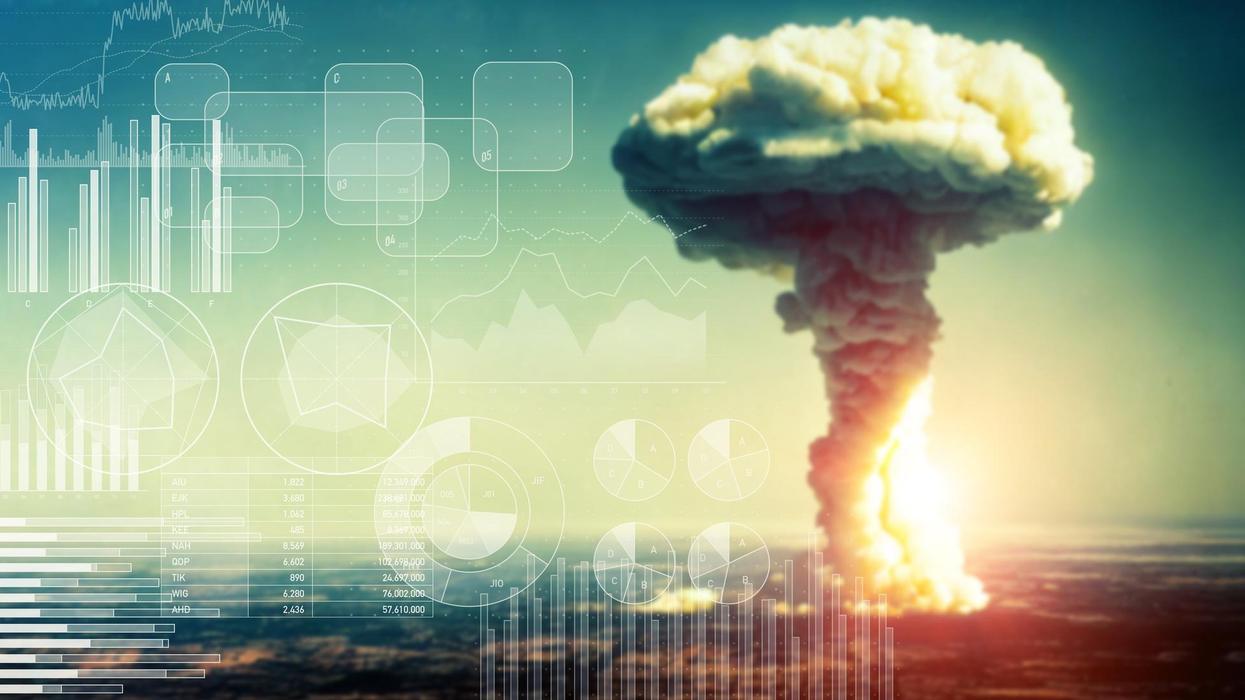Relations between the United States and China are spiraling dangerously downward, and neither side seems able to reverse the trend. Yet it is imperative that the world’s two biggest economies find a modus vivendi if the peace of the planet is to be preserved.
Consider the recent contretemps between the U.S. and China over a Chinese balloon that drifted over the United States. The rift caused acrimonious accusations by both sides and a cancellation of the Secretary of State’s visit to China, which had been designed to tamp down tensions.
China’s first reaction was a public regret, only later to be followed by more belligerent language. Wouldn’t it have been better if President Biden had taken China’s expression of regret and ignored the later, harsher responses? Wouldn’t it have been better if the secretary of state’s visits had gone forward?
That’s what President Kennedy did during the Cuban Missile Crisis six decades ago when the Soviet Union’s Nikita Khrushchev sent an emotional message suggesting that, rather than “doom the world to the catastrophe of thermonuclear war…let us not only relax the forces pulling on the ends of the rope, let’s take measures to untie the knot.” The very next day, Russia upped the ante with a much harsher message demanding that American missiles in Turkey be removed.
Kennedy ignored the second message and replied to the first. In due course, the Soviet missiles were removed from Cuba and the American missiles from Turkey, although the latter was not officially part of the deal.
How much better it would have been if the Secretary of State Blinken had gone ahead with his mission, met with his counterpart in China, and made an effort to reduce the tensions between China and the United States instead of accelerating them.
When I looked up the purpose of the new House of Representatives’ Select Committee on the Strategic Competition between the United States and the Chinese Communist Party, I found the following:
The Select Committee “is committed to working on a bipartisan basis to build a consensus on the threat posed by the Chinese Communist Party and develop a plan of action to defend the American people, our economy and our values.”
No one is denying that there is serious competition between the United States and China, but does it justify such a defensive crouch? Wouldn’t it have been better to form a committee that would also develop a plan of action so that the two major competing powers can avoid conflict?
Although the growing antagonism between the United States and China has not grown to the level of the Cuban Missile Crisis, nevertheless it presents the greatest danger to the world today. Much has been written about the "Thucydides Trap," Graham Allison’s warning that all too often in history the tension between a rising power and an established power results in war, as it did between Sparta and Athens in 431 BC, and German and Great Britain in the early 21th Century.
It is imperative that cooler heads in China and the United States work to defuse tensions. The prospect of nuclear war that so terrified the world in the fifties and sixties has lost some of its emotional punch. The historian Christopher Clark writes that Europe’s leaders in 1914 knew that a general European war would be massively destructive, but did they really feel it? He posits that in the 1950s and 60s decision makers and the general public not only understood the dangers of nuclear war, but viscerally felt it. Today that visceral fear has fallen away among younger generations.
China is not without blame for the growing confrontation between the United States and China. Under President Xi Jinping, the Communist Party has reasserted its dominant role over the economy and returned China to a more Maoist centralized state with aggressive and at times bullying diplomacy and military actions in the South China Sea and in the Himalayas. But that said, a drumbeat of anti-Chinese rhetoric from the Western powers only enables China’s hardliners and handicaps those in China who would seek a less belligerent accommodation with the West.
After all, China does not seek to overthrow our system of government. The Chinese Communist Party does not seek to export revolution as did the old Soviet Union. It is hard to imagine Cambridge University students becoming traitors as did Kim Philby, Guy Burgess, and Donald Maclean in the 1930s for the sake of the Chinese Communist Party.
As Singapore’s Bilahari Kausikan has pointed out: “Competition within a system cannot by definition be existential because the survival of the system is not at stake. China is the principal beneficiary of the existing system and has no strong incentive to kick over the table and change it in any fundamental way because its own economy rests on the foundation of that system.”
Americans have always suffered under the delusion that China should become more like the United States. In the 19th and early 20th centuries, American missionaries fanned out across China in an effort to convert the Chinese to Christianity. President Woodrow Wilson was delighted when he discovered that Sun Yat-sen, the father of modern China, had become a Christian. More recently, when Deng Xiaoping abandoned Maoism for a market economy, Americans concluded that a political liberalization was sure to follow, that China would become more like the United States. It didn’t happen, but is China responsible for this miscalculation and disappointment, or are we?
It is one thing to deny China technology that could be used militarily, but the bipartisan inflammatory language emanating from the United States is counter- productive to America’s interests and the preservation of peace. China and the United States are drifting, like sleepwalkers, toward confrontation much as Europe did in 1914 which of course resulted in a devastating war nobody wanted.
















